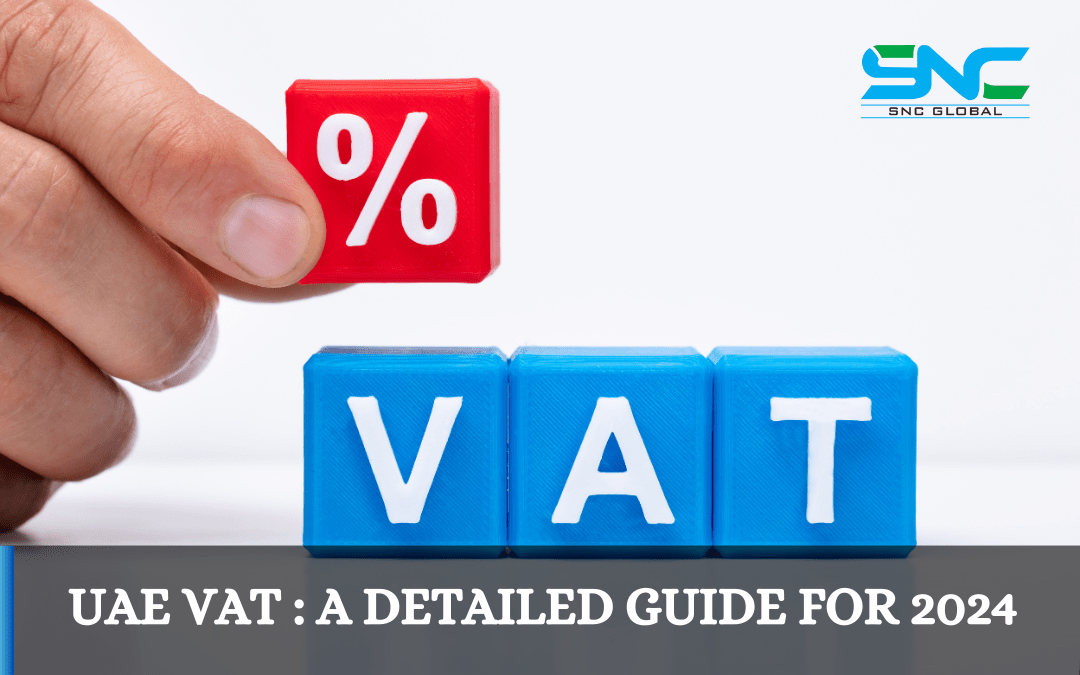The UAE (United Arab Emirates) has applied VAT (Value Added Tax) since January 1, 2018. The Federal Tax Authority (FTA) of the UAE issued Federal Decree-Law No. 8 of 2017 to execute VAT in the country.
So what is the VAT all about? Let’s find out about VAT registration in UAE and other necessary information about VAT in detail.
Value Added Tax (VAT)
VAT is a tax added to the supply of goods and services at each step as they move through the supply chain. The final retail customer pays this tax, and registered taxpayers like businesses collect it for the government.
Why did the UAE introduce VAT?
The UAE government provides high-quality public services like public transport, healthcare, education, and social services. VAT services in Dubai and the UAE help the government get income from multiple sources. It provides a steady inflow of revenue to help maintain the UAE people’s high standard of living.
VAT registration in Dubai and the UAE
As per the UAE VAT law, businesses must register for VAT if the total value of their taxable supplies and imports in a year is over AED 375,000. Businesses can also register voluntarily if their yearly supplies or imports exceed AED 187,500. They can register for VAT on the FTA’s website.
VAT rate and System in the UAE – An Overview
The FTA has set a standard 5% VAT rate in the UAE. However, they have specified some categories of goods and services as zero-rated and exempt supplies where no VAT is charged.
Let’s say a company manufactures and sells laptops to a wholesaler. The wholesaler then adds their margin and sells to a retailer. The retailer, in turn, increases the selling price to make a profit and sells the laptop to the consumer. The FTA charges a 5% VAT on goods and services sold. Here, each sale applies VAT, and the registered seller gets a tax credit on the VAT paid on purchases.
Types of Supplies As Per UAE VAT Law
- Zero-rated supplies charge 0% VAT. Taxpayers like education and healthcare services, international transport services, and exports outside the GCC can claim relevant input tax.
- Goods and services with standard-rated supplies charge 5% VAT.
- Deemed supplies are services that do not come under the supply category, but are charged with VAT. For instance, the sale of business assets without charge, transfers of business assets between the UAE and GCC states or vice versa, and certain non-business uses of goods on which input tax is claimed.
- Exempt supplies are not subject to VAT as per the UAE VAT law. Businesses cannot charge VAT or input tax while selling exempt goods and services. These include residential properties, undeveloped lands, some financial services, public transport services, and life insurance.
- Out-of-scope supplies are considered within the scope of UAE VAT law as per the FTA.
Each type of supply determines how VAT is applied based on the nature of the goods or services provided.
Input Tax in UAE VAT
Input tax refers to the VAT paid on goods, services, or imports that businesses in the UAE can reclaim. To claim input tax, businesses must keep the invoices and import documents.
VAT Records in the UAE
All businesses, registered for VAT or not, must maintain records, including
- Profit and loss
- Balance sheet
- Payroll information
- Records of fixed assets
- Accounts of purchases, sales, revenues, payments, expenses, and receipts
- Inventory
The UAE-VAT-registered businesses must retain five-year records of these from the transaction date.
VAT Returns in the UAE
VAT-registered businesses must submit VAT returns and pay any VAT owed to the FTA every quarter. The deadline for VAT filing and payment is the 28th day after the end of each quarter. The FTA might assign different tax filing periods to particular groups of taxpayers.
Implications of VAT on the UAE’s Individuals and Businesses
An individual’s cost of living might increase, depending on their spending habits. However, a person won’t notice any significant cost increases if he purchases items that are exempt from VAT.
Businesses need to regularly maintain their transactional record of sales, purchases, costs, income, and other relevant VAT charges and make their tax payments on time. If they fail to do so, they might have to pay severe penalties.
Penalties for VAT offenses in the UAE
The Federal Law No. (7) of 2017 on Tax Procedures mentions the penalties applicable for violating UAE VAT law and tax evasion in the UAE. Check the table below to learn about them.
| Type of Offense | Penalty |
| The price list is not displayed at the business place. | AED 15,000 |
| Failure to provide proper documents like a tax invoice, credit note, or relevant purchase document during a supply | AED 5,000 for each tax invoice, credit note, or relevant document |
| Failure to notify FTA about tax charges based on the margin | AED 2,500 |
| Goods not present in a Designated Zone or shifted to another Designated Zone | AED 500 to 300% of the tax involved |
| Tax evasion | 300% of the tax evaded |
VAT consultants in Dubai and the UAE can help individuals and businesses navigate smoothly through the VAT registration and follow-up processes. Check for the VAT service in Dubai or the UAE and get registered for VAT now.



Recent Comments